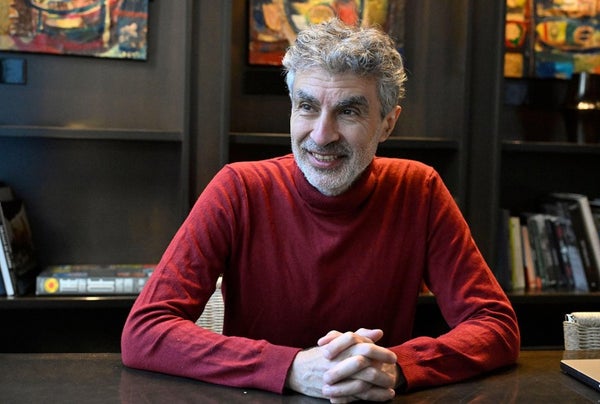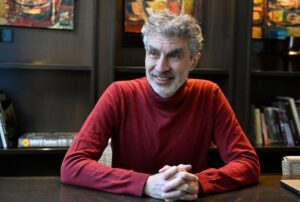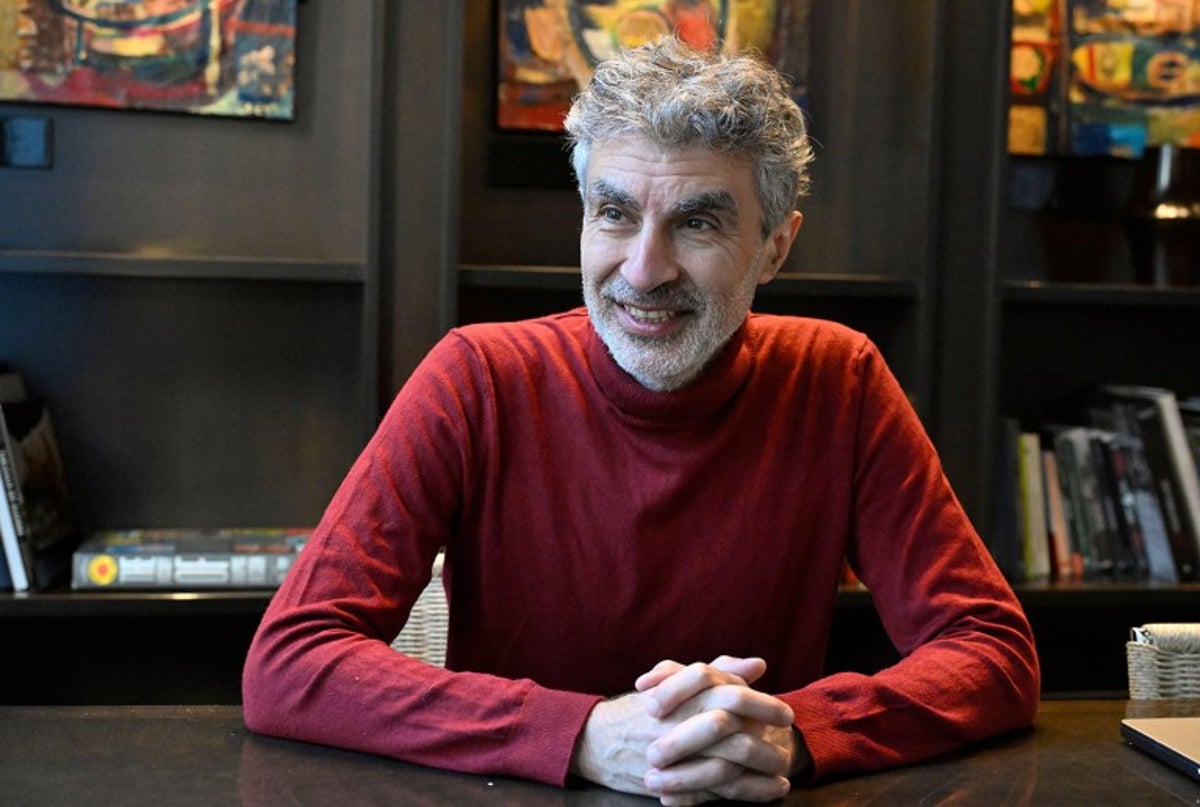November 13, 2025
2 min read
‘Godfather of AI’ Breaks Major Science Research Record
The milestone makes machine-learning trailblazer Yoshua Bengio the most cited researcher on Google Scholar

Computer scientist Yoshua Bengio has become the first person to have their work cited more than one million times on the search engine Google Scholar.
Bengio, who is based at the University of Montreal in Canada, is known for his pioneering research on machine learning. He has been called one of the godfathers of artificial intelligence (AI), alongside computer scientists Geoffrey Hinton at the University of Toronto in Canada and Yann LeCun at the technology company Meta in New York City. The trio shared the A. M. Turing Award — the most prestigious prize in computer science — in 2019 for work on neural networks.
Bengio’s top-cited papers include one he co-authored in 2014 titled Generative Adversarial Nets, which has more than 105,000 Google Scholar citations, as well as a Nature review paper he wrote with LeCun and Hinton. The list also includes papers on ‘attention’, a technique that helps machines to analyse text. Attention became one of the crucial innovations that fuelled the chatbot revolution, starting with ChatGPT in 2022.
On supporting science journalism
If you’re enjoying this article, consider supporting our award-winning journalism by subscribing. By purchasing a subscription you are helping to ensure the future of impactful stories about the discoveries and ideas shaping our world today.
The “remarkable” achievement highlights the tremendous growth in popularity of machine learning, says Kaiming He, a computer scientist at the Massachusetts Institute of Technology in Cambridge who is an author on the most-cited paper of the twenty-first century, according to a Nature analysis published earlier this year. Of the top ten most cited papers this century, eight were on machine learning.
“AI is changing the world, and we’re just seeing the tip of the iceberg,” Bengio tells Nature.
Outstanding track record
Bengio’s “track record is clearly outstanding”, says Alberto Martín Martín, an information scientist at the University of Granada in Spain. But he adds that raw citation counts are “crude metrics” that some less-scrupulous researchers have learnt to manipulate, and he does not think that universities should use the rankings for marketing.
Different bibliometric platforms — such as Web of Science, Scopus and OpenAlex — rank researchers in a different way to Google Scholar, and often result in lower overall numbers of citations, as the Nature analysis found. As well as in peer-reviewed journals, Google Scholar tracks citations in books and preprints posted anywhere on the Internet.
Bengio says he is an “avid user” of Google Scholar, which celebrated two decades since its founding last year. “I think it has revolutionized science. It makes it so much easier to do things that would otherwise take painstaking efforts,” he says.
But he adds that he pays “as little as possible” attention to his own citation count. “It should not become an objective for researchers to have more citations, because it leads into trying to optimize this rather than do good science and go after the truth.”
This article is reproduced with permission and was first published on November 12, 2025.
It’s Time to Stand Up for Science
If you enjoyed this article, I’d like to ask for your support. Scientific American has served as an advocate for science and industry for 180 years, and right now may be the most critical moment in that two-century history.
I’ve been a Scientific American subscriber since I was 12 years old, and it helped shape the way I look at the world. SciAm always educates and delights me, and inspires a sense of awe for our vast, beautiful universe. I hope it does that for you, too.
If you subscribe to Scientific American, you help ensure that our coverage is centered on meaningful research and discovery; that we have the resources to report on the decisions that threaten labs across the U.S.; and that we support both budding and working scientists at a time when the value of science itself too often goes unrecognized.
In return, you get essential news, captivating podcasts, brilliant infographics, can’t-miss newsletters, must-watch videos, challenging games, and the science world’s best writing and reporting. You can even gift someone a subscription.
There has never been a more important time for us to stand up and show why science matters. I hope you’ll support us in that mission.








